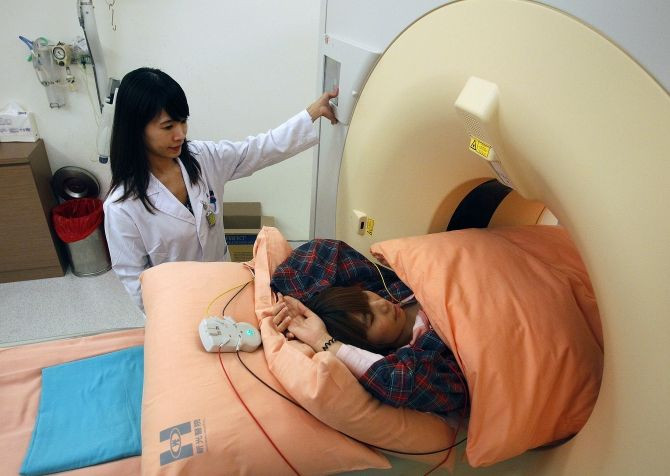Mind-Reading Spelling Technique May Give 'Locked-In' Ability to Speak

For people with locked-in syndrome, a condition which involves complete paralysis and was most recently famously documented in the movie The Diving Bell and the Butterfly. Part of the horror that comes with being unable to move any portion of your body is the inability to communicate.
Though the condition is rare, they are not alone – with several other conditions manifesting themselves in patients with an ability to move or speak. Scientists have devised a method that may alleviate their situations with a speller that can read their minds, and could allow patients to have conversations in real-time.
Researchers at the Maastricht University of the Netherlands have devised a way in which patients can communicate using a functional magnetic resonance imaging (fMRI). A fMRI which allows physicians and researchers to measure blood flow in the brain to determine brain activity. Their technology aims to build on previous works, which helped determine consciousness in patients who were in an unconscious, vegetative state and trying to allow them to answer yes or no questions while in this state.
Led by Bettina Sorger, the team devised a letter-encoding technique that requires very little pre-training. Patients were tasked with picking letters on a screen. For each separate character, participants were guided into performing a mental task for a designated amount of time. Therefore, patients would have 27 discrete brain patterns corresponding with a letter of the alphabet and a space bar, which could immediately be decoded with state of the art data analysis.
Then subjects and researchers would have a short conversation consisting of two questions and two responses provided by the patients. By the end of their sessions, all patients were able to successfully complete the task – and thus communicate.
This technology must be greeted with enormous happiness by patients suffering from conditions like locked-in syndrome, and others that impair motor and communication capacity; their loved ones, who may be given the ability to really speak with the afflicted; and their physicians.
The study was published in the latest issue of Current Biology.
Published by Medicaldaily.com



























